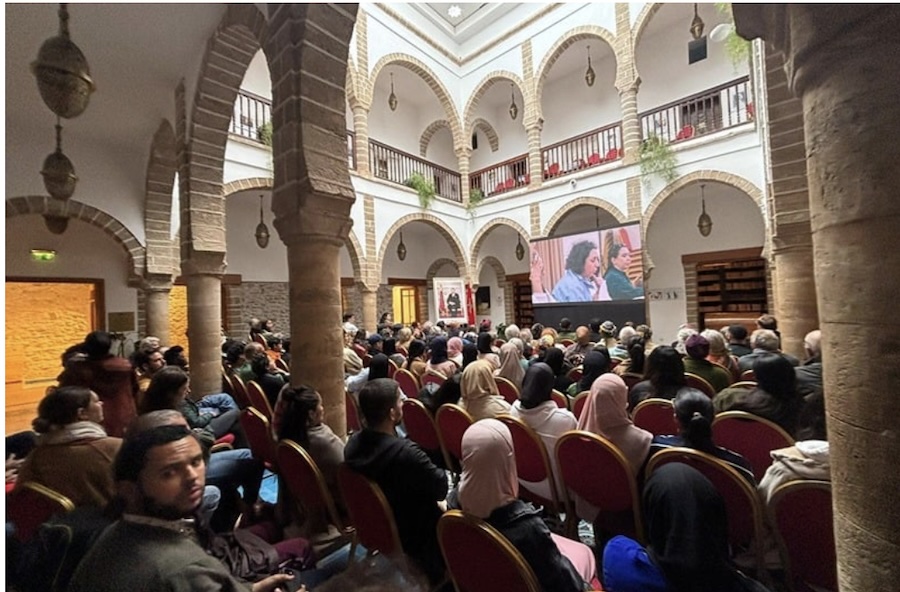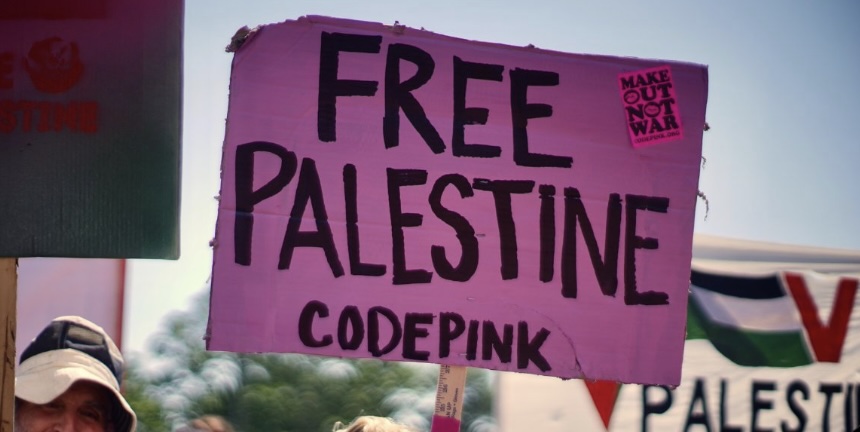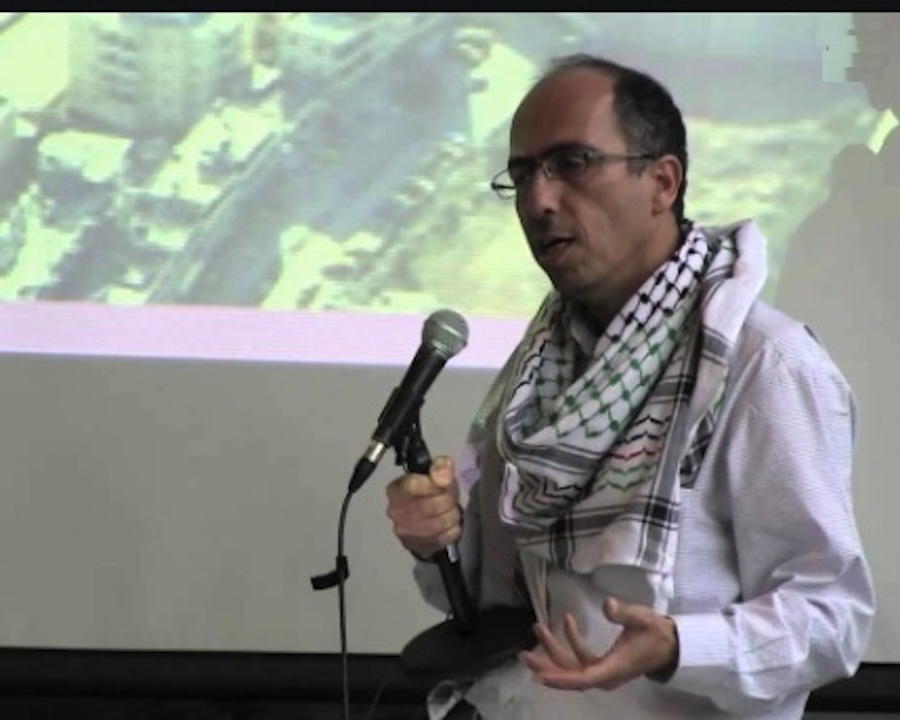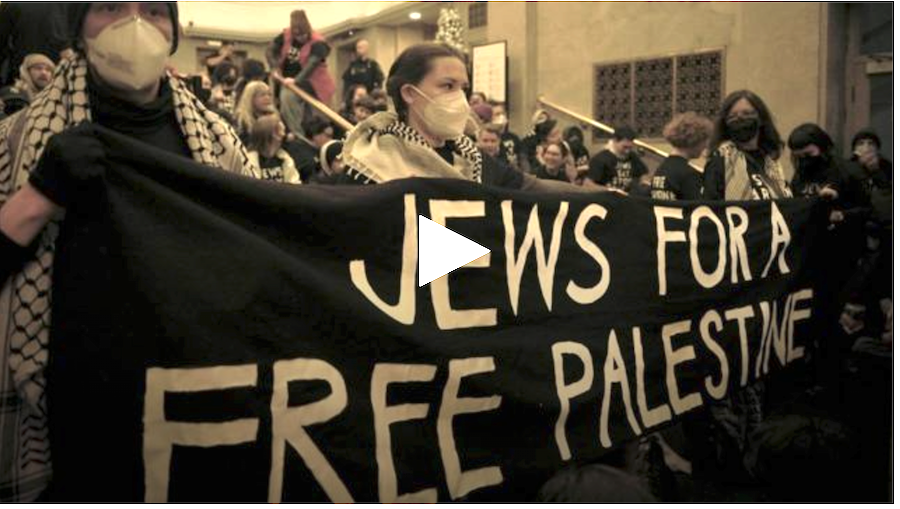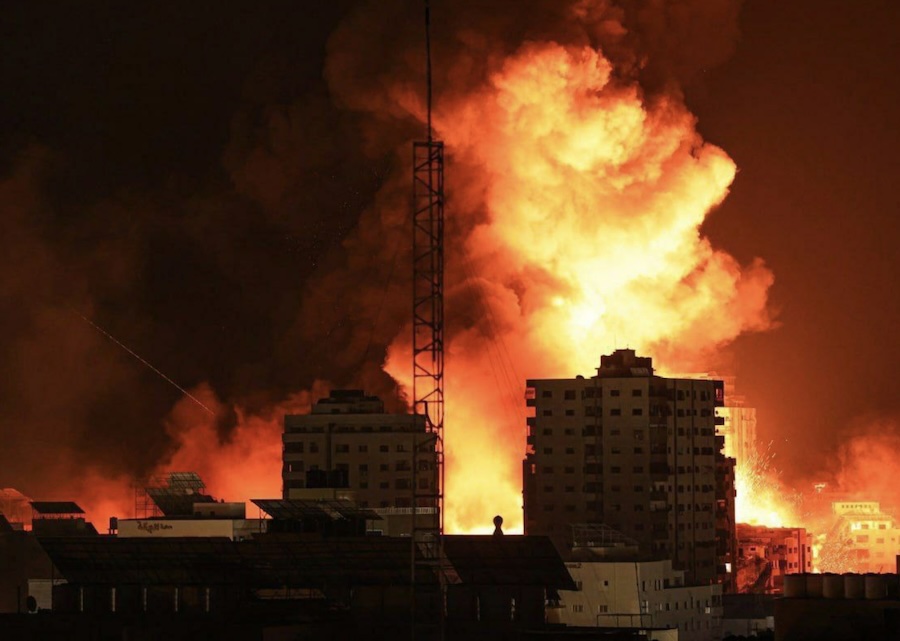. . HUMAN RIGHTS . .
A blog by Richard Falk
[Prefatory Note: This post modifies and updates an interview with Mohammad Ali Haqshenas, a journalist with the International Quran News Agency, published under its auspices on January 22, 2025. It is affected by the assumption of the US presidency by Donald Trump and the early days of the Israel-Hamas ceasefire agreement negotiated during the Biden presidency more than seven months earlier.]
1. How do you assess Donald Trump’s public and behind-the-scenes efforts as the U.S. President-elect to advance the ceasefire agreement and prisoner exchange?
For Trump a major incentive of achieving the ceasefire and prisoner exchange was to show America that he gets things done as contrasted with Biden who let this same ceasefire agreement sit on the shelf for more than six months.
The ceasefire is publicized as a demonstration of Trump’s and US leverage with respect to Israel when it actively seeks results rather than merely wants to make a rhetorical impression, but there is more to this ceasefire that is immediately apparent. In addition to a promise to Netanyahu of unconditional support, Trump may well have given confidential assurances of backing Israel’s high priority strategic ambitions.
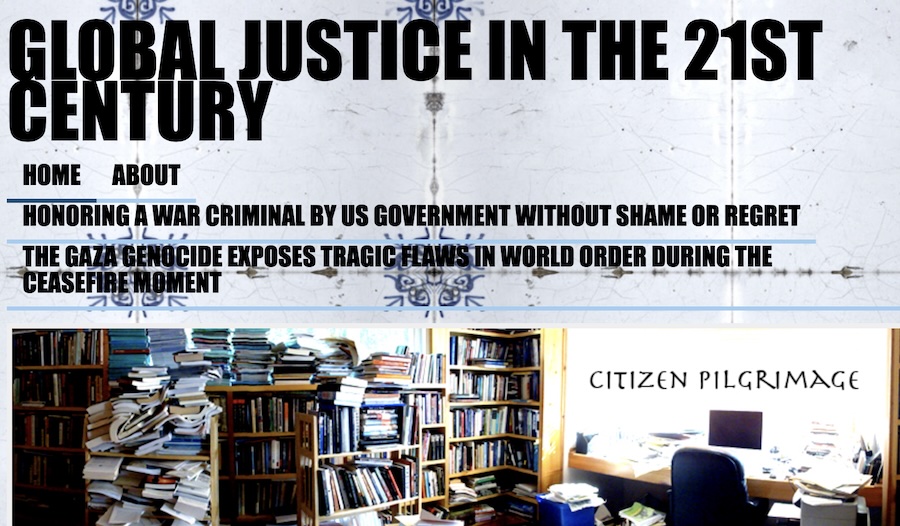
Number one would be to give cover if Israel chooses to annex all or most of the West Bank. Almost as important would be Trump’s promise that it would do his best to persuade the government of Saudi Arabia to normalize relations with Israel. This would represent a continuation of the arrangements brokered by the US to induce the UAE, Bahrain, Sudan, and Morrocco at the end of first presidential term in 2020 to reach normalization agreements with Israel.
It is also significant that numerous Washington officials in the Trump entourage have unconditionally promised to support Israel if the ceasefire arrangements collapse regardless of which side is at fault. There is not even a pretension of being objective in the sense of seeking to discern where the evidence of responsibility points.
Netanyahu is rumored to have given his hardline cabinet members, Ben Gvir and Smotrich, assurances that the military campaign will resume at the end of the six-week first phase. These assurances were probably necessary to avoid the collapse of Israel’s shaky governing coalition.
2. How do you view the relationship between Trump and Netanyahu, as well as U.S. political considerations, in light of this ceasefire?
I think the relationship of these two autocratic leaders is based on their shared transactional style, ideological agreement, and shared strategic interests. Both leaders are defenders of the West against the rest, being especially hostile to Islamic forces in the Islamic world. The Palestinian struggle is on one level the core expression of this geopolitical rivalry, with all the complicit supporters of Israel coming from the white dominant countries, that is, the European colonial powers and the breakaway British colonies in North America, Australia, and New Zealand. On the Palestinian side, except for Iran, which is indirectly supportive of the Palestinian struggle, the political actors siding with the Palestinians are Islamic non-governmental movements and militias in the Middle East, most militantly the Houthis in Yemen and Hezbollah in Lebanon, both materially and diplomatically aided by Iran. Islamic governments in the Arab world have condemned Israel for committing genocide but have refrained from acting materially or even diplomatically in ways that might exert pressure on Israel. The alignments in this ‘clash of civilizations’ correspond closely to the political vision of Trump and Netanyahu, and recall the prophetic pronouncements of Samuel Huntington shortly after the end of the Cold War.
3. Previous ceasefire agreements between Israel and Hamas were violated due to clashes between the two sides and ultimately failed. Do you think this agreement signifies a permanent end to the war or merely a temporary halt in conflicts?
I believe that Israel will not end the conflict until it satisfies at least one of its two strategic goals, both of which are outside of Gaza—the primary goal of Israel is the annexation of the West Bank coupled with a declaration of Israel’s victory over the Palestinians, signified by the formal establishment of Greater Israel as an exclusivist Jewish state from ‘the river to the sea.’ The secondary goal is to normalize relations with Saudi Arabia as a political foundation for the formation of an aggressive coalition that adopts policies to achieve regime change in Iran. Israel seems prepared to risk a major war in the course of doing so, while Saudi Arabia appears more cautious. The Trump presidency is clearly disposed to join Israel if it makes such an effort, indirectly if possible, directly if necessary. General Keith Kellogg, appointed by Trump as his Special Envoy to Ukraine in keeping with such conjectures is publicly advocating the revival of a policy of ‘maximum pressure’ on Iran as a priority of American foreign policy under Trump.
I think the Hamas side will do its best to uphold commitments to release hostages and abide by the ceasefire while Israel will pragmatically weigh its interests as the process goes forward, but seems far more likely to break the ceasefire agreement after the first 42 days, perhaps as Netanyahu’s way of keeping his coalition from collapsing, or even before as several violent incidents provoked by Israeli military forces have already occurred.
Nothing short of a total Hamas political surrender including the willingness to give up whatever weapons the resistance movement possesses might induce Israel to give temporily up its unmet goals of annexation and Saudi normalization by way of a peace treaty. Even if the ceasefire is more or less maintained in its first phase, Israel seems unlikely to remain within the ceasefire framework once the six weeks of phase one is completed, which means that the latter two latter phases of ending the campaign and IDF withdrawal phases of the ceasefire will never happen. In this event, it is all but certain that Israel would then resume the full fury of its genocidal campaign, provoking Hamas to react. Israel would then use its influence with mainstream media and support in Washington to shift blame to Hamas to avoid any responsibility for the breakdown in the courts of public opinion while resuming its genocidal campaign in Gaza that never was truly abandoned despite the claims made on behalf of the ceasefire diplomacy..
4. The Israeli finance minister, referring to his discussions with Netanyahu, stated that Israel has not yet achieved its objectives in the war. Can it be argued that this agreement will undermine Israel’s security?
I believe the Israeli response was never primarily about security. It was main about land and demography, more specifically about gaining sovereignty over the West Bank, and giving the settler militants a green light to make life unlivable for the Palestinians so that they would die or leave. This anticipated and indulged settler rampage has gathered momentum with its undisguised agenda of dispossessing and killing enough Palestinians so as to restore a Jewish majority population. By such means, settler violence serves an undisguised prelude to the incorporation of the West Bank into Israel, likely with Trump’s endorsement.
Prior to October 7, Palestinians and Israelis were almost evenly split in the overall population of 14 or 15 million inhabiting Israel and the occupied Palestinian territories of the West Bank and Gaza. The higher Palestinian birthrate means that it is only a matter time until a majority of Palestinians are living under Israeli apartheid control and long dubious claims made by Israel to being a democracy would become delusional.
In the background of my response is the growing evidence that Israel allowed the October 7 attack to happen because it wanted to initiate massive violence against the Palestinians with the justification of acting in a retaliatory mode that would excuse the death and expulsion of large number of Palestinians, a lethal process more or less repeating the expulsions of an estimated 750.000 Palestinians in 1948, what is known to Palestinians as the nakba or catastrophe.
(continued in right column)
Question related to this article:
How can war crimes be documented, stopped, punished and prevented?
How can a culture of peace be established in the Middle East?
(continued from left column)
The Israel government received several extremely reliable warnings preceding the October 7 attack, including from US intelligence sources. In addition, Israel possessed advanced surveillance capabilities throughout Gaza to monitor Hamas resistance moves. These technical capabilities were reportedly reinforced by informers making the supposed ‘surprise’ nature of the attack hardly possible to believe. Under such circumstances it is inconceivable that Israel, at the very least, should have prepared to defend its borders and nearby Israeli communities. This is not to say that Israel was necessarily privy to the details or scope of the attack and might have been genuinely surprised by its sophistication and severity. This might explain the widespread support in Israel and indulgence throughout the world for an excessive military retaliation that lasted for several months. During this period protests were small and were hardly noticed despite the genocidal features of the Israeli attack. As the violence and denial of the necessities for Palestinian subsistence went on month after month civil society opposition grew more intense and widespread, an impression furthered by agitated by repeated Israeli lethal interferences with humanitarian aid deliveries and accompanying aid workers, including even the targeting of ambulances, rescue vehicles, and the supplies sent for the relief of desperately hungry, sick, and injured Palestinians.
5. The release of prisoners is a critical step in the course of the war. Israel has incurred significant costs by agreeing to release Hamas members and individuals convicted of violent actions, which has sparked disputes within the Israeli cabinet. In your view, what challenges will this stage of the ceasefire face?
I think the main humiliation for Israel was not the release of so many Palestinian prisoners, but the need to negotiate as equals with Hamas to recover 33 hostages in a military campaign justified from the beginning as dedicated to the destruction and elimination of Hamas as a political actor and the reconfiguring of governance in Gaza.
Anyone following these events would also have hardly known from the one-sided media coverage that Palestinian prisoners were being released as the near exclusive media focus, especially that of the leading platforms in the West, was on the plight of the ‘hostages,’ while ignoring the far worse plight of the civilian population of Gaza or the many Palestinian women and children subjected to far worse treatment while under confinement. The release of more than 90 Palestinians prisoners on the first days of the ceasefire, many of whom had endured extremely abusive treatment and were innocent of any involvement in the October 7 attack was deemed hardly newsworthy. By the end of the six-week Phase One of the Ceasefire Arrangement nearly 2,000 Palestinians are scheduled for release. True, it is a direct violation of the law of war to hold innocent civilians or even captured enemy soldiers as hostage, but considering the disparity of weaponry and given the long history of Israel’s violence against civilians in Gaza, it becomes understandable why the Hamas resistance would seek at least the so-called ‘bargaining chip’ of hostages.
This underlying disparity in the relation between the hostage release and prisoner release reinforced the long-nurtured Israeli discourse that Israel values the life and freedom of its citizens so much than does Hamas that it is willing to make to agree to an unequal exchange with its enemy. Such state propaganda is consistent with the reverse disparity in media treatment, showing a human interest in each Israeli hostage released while viewing the Palestinian prisoner releases as a purely impersonal matter of statistics, a portrayal movingly contradicted by the crowds in the West Bank celebrating the prisoner releases, heeding their words of anguish about their detention experience (often held for long periods without charges) and their joyous embrace of ‘freedom.’
Those of us with experience of the two political cultures are struck by the closeness of Palestinian families and the absence of any sacrificial ethos comparable to Israel’s Hannibal Directive that instructs IDF soldiers to kill Israelis at risk of being captured rather than allowing them to become prisoners who will be traded for a disproportionate number of Israels. Living under conditions of an apartheid occupation or oppression allows Palestinians few satisfactions in pattens of existence most of us would regard as a life of misery other than personal intimacy of family and friendship.
6. How do you evaluate the future of Palestine, particularly the Gaza region? Some observers believe that Gaza’s current generation of children, who have lost their homes and families in this war, might take action against Israel in the future. What is your analysis?
Given the present correlation of forces, including the Trump assumption of the US presidency, I see little hope for a just resolution of Palestinian grievances soon. A further period of struggle, including a continuing process of Israeli delegitimation is underway. Israeli as a result of the Gaza genocide has been rebranded as a pariah state whose lawlessness has undermined it sovereign rights, and even drawn into question its entitlement to remain a member of the UN that its leaders regularly defame as ‘a cesspool of antisemitism.’ Israel also faces increased pressures from the impact of a rising tide of global solidarity initiatives generated by civil society activism, and taking the form of boycotts, divestment, sanctions, taxpayer revolt, and reinforce by reductions of trade with and investment in Israel. Such developments are bound to have economic and psycho-political impacts over time on the quality of life in Israel. Few doubt that such a campaign caused apartheid South African elites to experience the anguish of being excluded from international sporting events or of by having lucrative invitations refused by performing international musicians.
If the dynamics of delegitimation lead a significant number of Israelis to leave the country, choose to live elsewhere it would be a signal of the imminent collapse of Zionism as the state ideology of Israel, if not of Israel itself. Suddenly, the phantasies of veteran residents of Palestinian refugee camps are becoming real political possibilities. In other words, the Palestinians are winning the nonviolent Legitimacy War as measured by the Palestinian capture and global control of the high moral and legal ground of the conflict, and by the vitality of its national resistance under the most extreme pressures exerted by Israeli recourse to apartheid and now genocide. The dynamics of delegitimation may take decades of further suffering for Palestinians to feel vindication by the success of their prolonged resistance, above all by its translation into a political outcome that finally realizes Palestinian self-determination in a form that the Palestinians favor, and not by an arrangement pre-packaged and imposed by the UN or outside forces.
If this path to the realization of basic rights is effectively blocked by Israel’s apartheid tactics of domination, even should the genocidal jagged edges no longer are present, it will undoubtedly stimulate armed Palestinian resistance especially from survivors of the Gaza genocide who lost parents and children, and in some cases, whole families, or are living as amputees or with maimed bodies. It is impossible to imagine the depths of grief, which over time will give way to a sense of rage and resentment that will seek political expression in the form of violent anti-Israel acts and movements, as well as fuel global surges of genuine antisemitism, the opposite of the weaponized variants used so opportunistically to shield Isreal from criticism, censure, and sanctions.
7. From the international law perspective, what can be done to stop the Israeli occupation, which is basically the source of years-long conflicts in Palestine?
As should have become clear after decades of Israeli efforts to convert Palestinians into persecuted strangers in their own homeland, there is no path to a secure Israeli future even if the oppressor maintains its harsh apartheid regime. If that does not achieve political surrender or at least sullen acquiescence, then as a final effort to deal with resistance, then the settler elites are quite likely to engage in a last-ditch recourse to genocide. Israel is following the same path that the colonial West chose when compelled to deal with native peoples in the countries settled, who were dehumanized, slaughtered, and permanently marginalized. These pre-modern aggressions were most often rationalized by international law that until the last century generally legitimated colonial conquest and claims of sovereignty. In contrast, international law has since 1945 formally declared apartheid and genocide as high international crimes, but such a reclassification has proved inadequate in the face of Israeli defiance reinforced by the geopolitical complicity of the West, especially as led by the US.
The test of Palestinian resistance may emerge shortly and can be reduced to whether the remarkable steadfastness (samud) of the Palestinian people can withstand a final Israeli effort to transfer, eliminate, or kill the resident Arab population. There are already indications that the Trump leadership favors bizarre ethnic cleansing operations such as that mentioned by Trump’s newly appointed Middle East Envoy, Steve Witkoff. He recently proposed transferring a portion of the surviving population of Gaza to Indonesia. Even if such a bizarre proposal is discounted as mere rhetoric it exhibited an intention to aid, abet, and facilitate Israel’s version of ‘a final solution’ that left the Jewish state in unobstructed control of historic Palestine. If we assume the Israeli willingness to implement such a plan and Indonesia agreeing in exchange for being lavishly subsidized, the very idea of such a proposal contradicts the proclaimed ethos of the 21st century. Channeling Trump, Witkoff is talking as if the world of states was a chess board on which the US could shift the pieces at will, an assert of hegemonic prerogatives.
– – – – – –
If you wish to make a comment on this article, you may write to coordinator@cpnn-world.org with the title “Comment on (name of article)” and we will put your comment on line. Because of the flood of spam, we have discontinued the direct application of comments.
